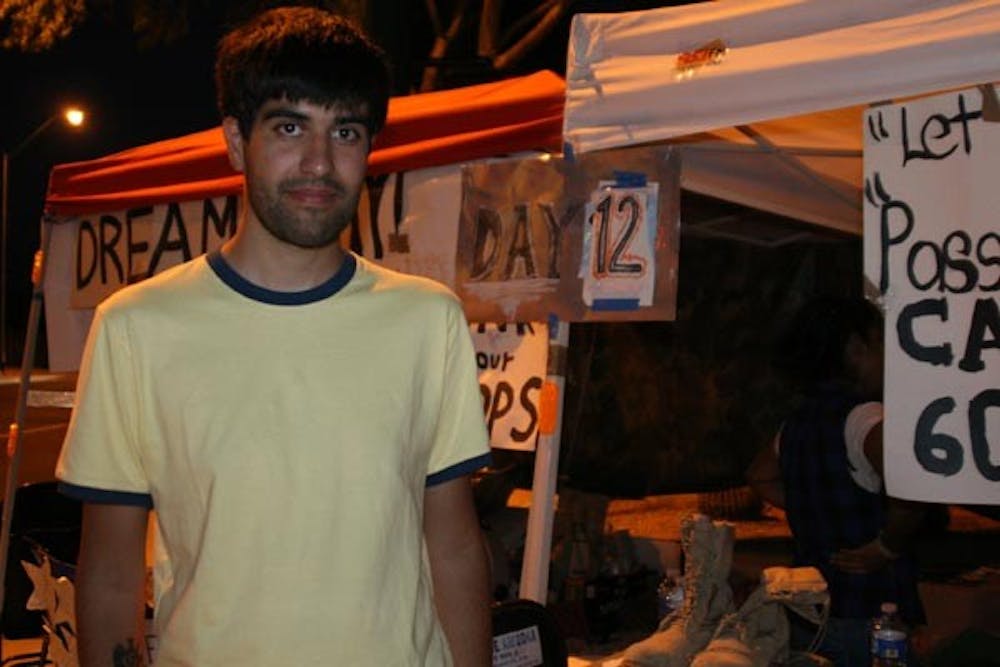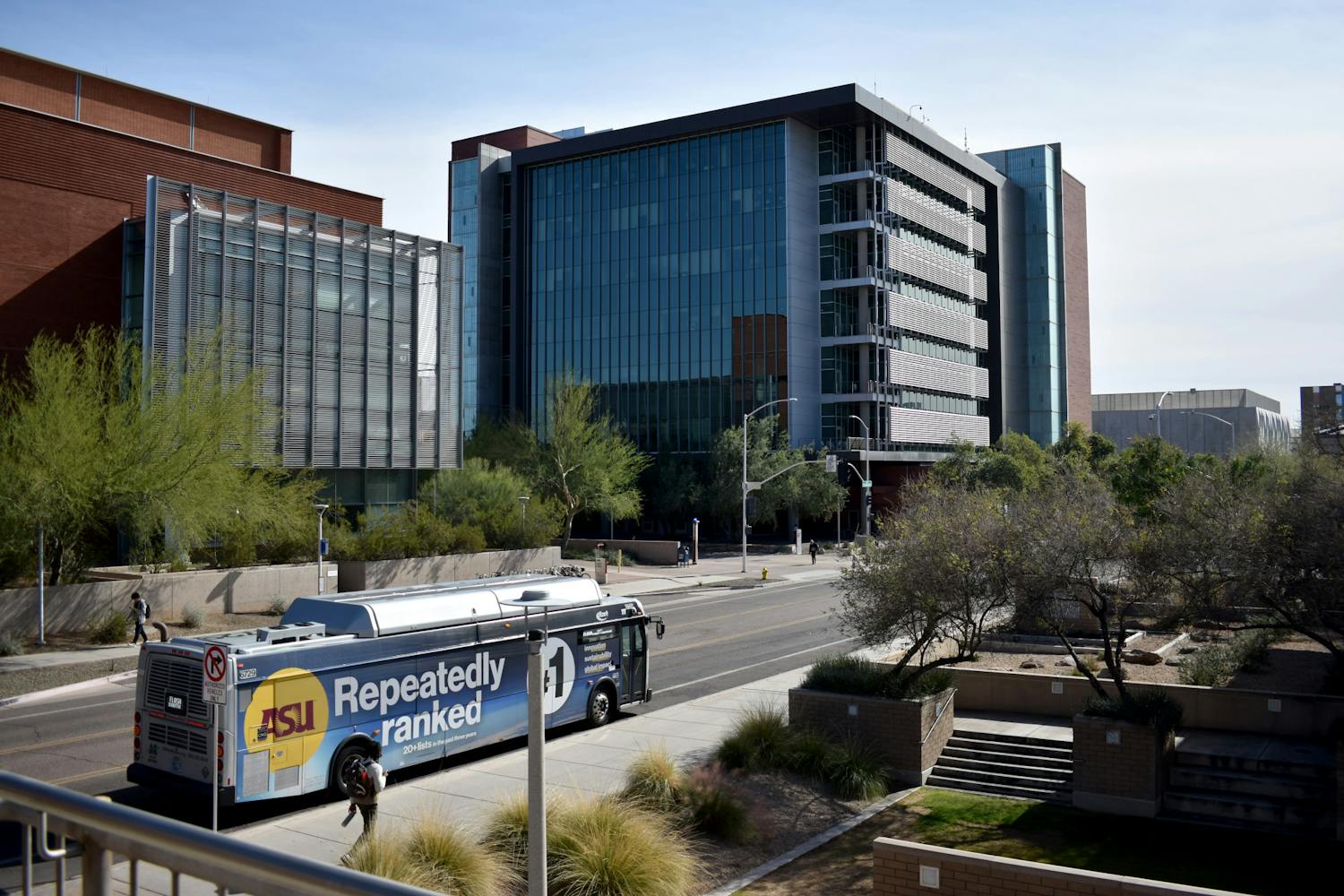“Go back to Mexico!” “Join the Mexican Army!” People yelled out their car windows as they drove by a group of undocumented college students camped outside Sen. John McCain’s Phoenix office Thursday afternoon.
Most students were from Mexico, but one among them stood out in the bunch. Mohammad Abdollahi, a 24-year-old undocumented college student from Michigan, was born in Iran.
Abdollahi and his peers have been camping out since Sept. 16, with the original goal of convincing McCain to support a defense bill that included the Development, Relief and Education for Alien Minors Act, also known as the DREAM Act.
However, the Senate failed to pass the bill on Sept. 21 with a final vote of 56-43. McCain voted against the bill, saying the DREAM Act had nothing to do with national defense.
Now, the students plan on staying outside the senator’s office until he publicly voices support for the act.
McCain has co-sponsored versions of the DREAM Act in the past. The State Press was unable to reach a spokesperson from McCain’s office to comment on the senator’s current view of the legislation.
The DREAM Act would create a path to citizenship for undocumented students under 35 who entered the United States before the age of 16, have been in the country for five consecutive years and have graduated high school. The act requires these students to go to college or enlist in the military.
Just over 2.1 million undocumented students in the nation can be beneficiaries, according to a report by Migration Policy Institute, a Washington, D.C., think-tank that analyzes immigration policies.
Abdollahi arrived at the campsite on a breezy Wednesday evening with a gallon of gasoline in his hand intended for the generator the group had been using for electricity.
The 24-year-old had a mop of black hair, wore metal-rimmed glasses and dressed in cargo shorts, a T-shirt with a DREAM Act graphic and black sandals.
Abdollahi sat down cross-legged on the sidewalk.
“How I came here undocumented is probably in the minority,” he said. “A lawyer misfiled some paperwork.”
Abdollahi came to the United States when he was 3 years old, originally living in Ann Arbor, Mich.
He attended a community college in Ann Arbor and was studying social work, he said.
Because of the misfiled paperwork, Abdollahi’s family was denied legal status in the U.S. but decided to stay anyway, he said.
“We were short $20 on a filling fee,” he said.
Abdollahi said he doesn’t have it as hard as other undocumented students and is a little more privileged than others because his parents are highly educated.
“Both my parents have Ph.D.’s.” he said.
Abdollahi was uncomfortable talking about his parents and avoided questions about them. He then walked off to make a long phone call.
Erika Andiola, 23, who has been camping out is also an undocumented ASU alumna who met Abdollahi over a year ago on the phone.
“He would keep me updated with the national DREAM Act coalition strategies,” she said.
Andiola, who got her degree in psychology, met Abdollahi in May a few days before he visited McCain’s office in Tucson, she said.
Abdollahi made national news when he went to McCain’s Tucson office in a blue graduation cap and gown and staged a sit-in with other undocumented students from across the nation last May.
He was arrested for criminal trespassing and was transferred to Immigration and Customs Enforcement along with the other students, Abdollahi said.
Apart from being undocumented, Abdollahi is also gay, which is a crime in his home country, but even so, he wasn’t afraid of risking deportation.
“I wasn’t worried at all of being deported,” he said. “It was a risk I was willing to take.”
Abdollahi was later released but has to check in with ICE every two months, he said.
Since they were high profiled undocumented students ICE decided to let them go, he said.
On the day the Senate voted on the bill, anti-illegal immigration protestors showed up at the campsite.
Some were carrying signs that read “Deportation? Si Se Puede” and “Don’t give our children’s future to illegals.”
Brandy Baron, a 54-year-old Arizona native and a protester said her recommendation to students who want to continue a higher education should go back to their home countries.
“I don’t hate them,” she said. “I’m sure these kids are very bright… but anything that leads to citizenship is a form of amnesty and that’s unacceptable.”
But like most of the students at the campsite, Abdollahi feels like the U.S. is home, and they have to fight for their rights even if they are undocumented, he said.
ASU President Michael Crow announced his support of the DREAM Act during a phone conference on Sept. 21, the day the Senate bill was defeated.
“High achievement, particularly in children, must be recognized regardless of the political situation that they find themselves in,” Crow said.
Reach the reporter at uriel.garcia@asu.edu





